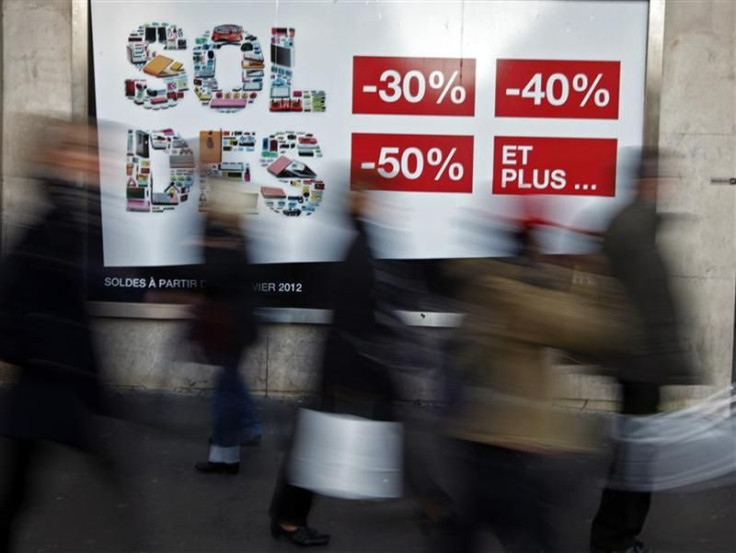Euro zone Industry, Spending Slump in Late 2011

(REUTERS) - A collapse in household spending, exports and manufacturing sucked the life out of the euro zone's economy in the final months of 2011, the EU said on Tuesday, showing the scope of the downturn that looks set to become a fully fledged recession.
Output in the 17 countries sharing the euro shrank 0.3 percent in October to December from the third quarter, the European Union's statistics office Eurostat said, confirming an earlier estimate released last month.
European households, suffering from deep cuts in government spending and rising unemployment, reduced their spending by 0.4 percent, while government expenditure fell 0.2 percent in the fourth quarter. Imports into the euro zone fell 1.2 percent.
In a sign of the weak business confidence, industry ranging from manufacturing to mining slumped 2 percent in the period from the third quarter, as concerns about the currency area's ability to honor its debts increased.
That intensity has subsided following the European Central Bank's offer of a trillion euros in medium-term lending to banks and a political deal among most EU countries to commit to budget austerity, bringing Italian and Spanish bond yields to manageable levels.
ECB President Mario Draghi said last week he also sees a stabilization in business confidence, albeit at low levels, and the EU's top economic official Olli Rehn said on Tuesday he sees signs of improvement in Europe's economy.
Still, the European Commission expects the euro zone to enter recession this year, with the economy contracting 0.3 percent and there are wide divergences between the fate of debt-stricken Greece and efficient, export-driven Germany.
Greece is likely to endure another year of recession in 2012 and probably will not return to growth until 2014, while Germany and France, the euro zone's biggest economies, are seen escaping a contraction this year.
The divergence was also clear in the last quarter of 2011, when Italy, the euro zone's third largest economy, saw output shrink 0.7 percent, while France expanded 0.2 percent.
(Reporting by Robin Emmott; editing by Rex Merrifield)
© Copyright Thomson Reuters {{Year}}. All rights reserved.





















